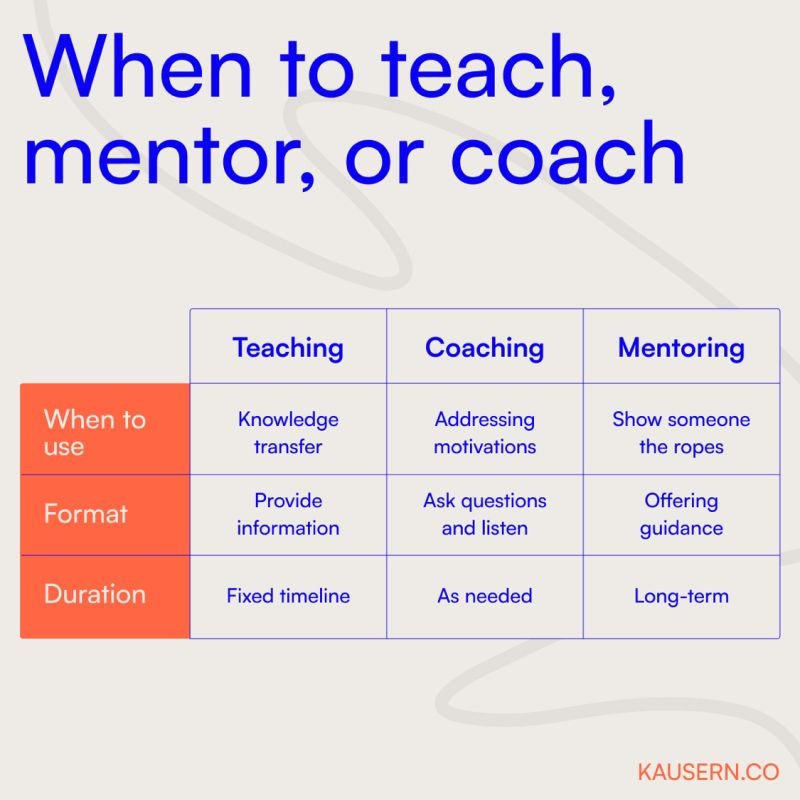When to teach, mentor, or coach
When I volunteered at a non-profit many years ago, I had some newbies in my team. Because my default ‘helping’ style is to coach, I coached them instead of teaching or training them during their first 30 days. Needless to say, I got scolded by a senior, who asked, “Do you expect newborn babies to feed themselves?”
One of the challenges a young manager faces is how best to support a team member’s development to improve their performance. When do we teach, mentor, or coach? These ‘helping’ methods all feel similar, but they have very different and specific uses. Here is a quick guide (see image).
Teaching
When an enthusiastic employee is starting a new job, they may lack the knowledge and skills to perform effectively. The teaching (or training) approach works best here to address the knowledge gap. Employees at this stage are given orders, instruction and told how to do things.
Beware: This method is time consuming in the beginning because the manager (you) needs to put aside additional time to teach a newbie how to solve problems. If done correctly, your new employee will soon get the hang of it and attempt to solve problems independently with their newfound knowledge. But if done incorrectly, they can become dependent on you every time they can’t do something.
Coaching
The employee’s level of expertise has increased, but stress and the fading initial euphoria of starting a new job have decreased their motivation and commitment levels.
By using non-directive approaches such as asking powerful questions, listening, and giving space for them to reflect, coaching is more focused on building an employee’s self-awareness, personal ownership and commitment to take action.
Beware: Some managers may find coaching difficult because it’s much faster to just dispense answers without encouraging an employee’s independence. But a good coach-leader focuses on helping an employee reach their full potential. “Give a man a fish, and you feed him for a day. Teach a man to fish, and you feed him for a lifetime”.
Mentoring
Mentors share their knowledge, skills, and experience to help another develop and grow. Mentoring is more directive than coaching because mentor-leaders offer advice, suggestions, and guidance to an employee. A mentoring relationship is often longer-term (6 months to decades).
Beware: Typically, mentoring is less structured compared to coaching, which follows a more rigorous structure. Therefore, it is up to the employee’s discretion whether they will act on their mentor’s advice or not.
When choosing how to approach the development of your employees, ask yourself which method suits the situation. Is this a teaching, coaching, or mentoring opportunity? ●

